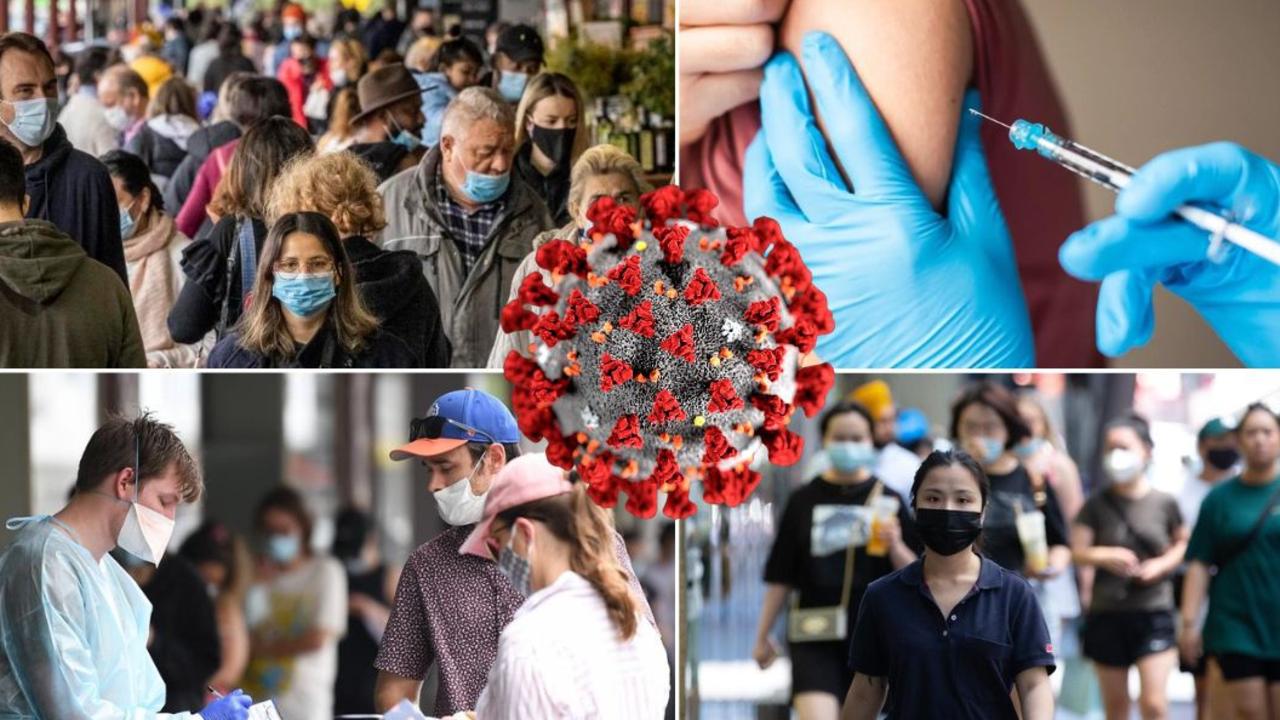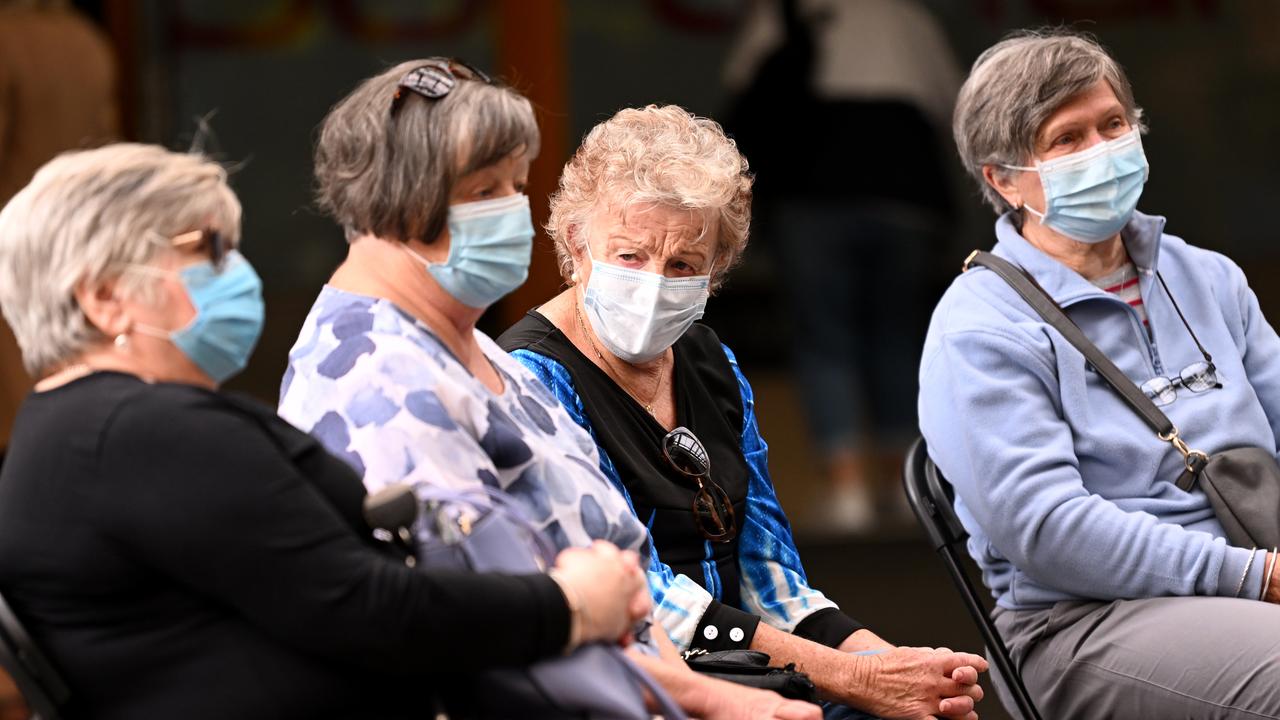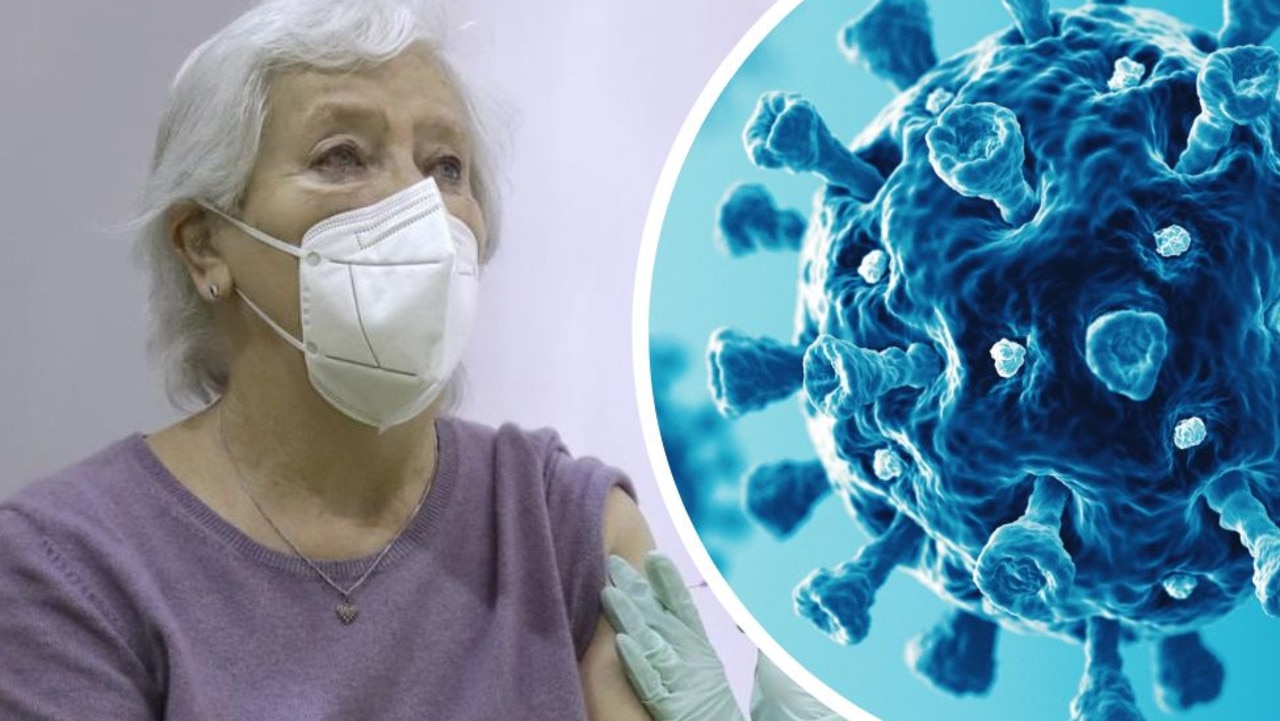Coronavirus world: Oktoberfest returns to Germany ‘without conditions or restrictions’
Grab a stein, Oktoberfest will return to Germany after the taps ran dry in 2020 due to Covid lockdowns in the festival’s first cancellation since World War II.
Coronavirus
Don't miss out on the headlines from Coronavirus. Followed categories will be added to My News.
Germany’s iconic Oktoberfest beer festival will once again take place in Munich in 2022 after being cancelled two years running due to the coronavirus, the city’s mayor said.
The Oktoberfest would be held “without conditions or restrictions”, Munich mayor Dieter Reiter told a press conference.
The world-renowned knees-up drew around six million visitors annually before the pandemic. It was cancelled in 2020 for the first time since World War II after the outbreak of the virus.
The festival, usually held between September and October, was cancelled again in 2021 as Germany battled consecutive deadly waves of the virus.
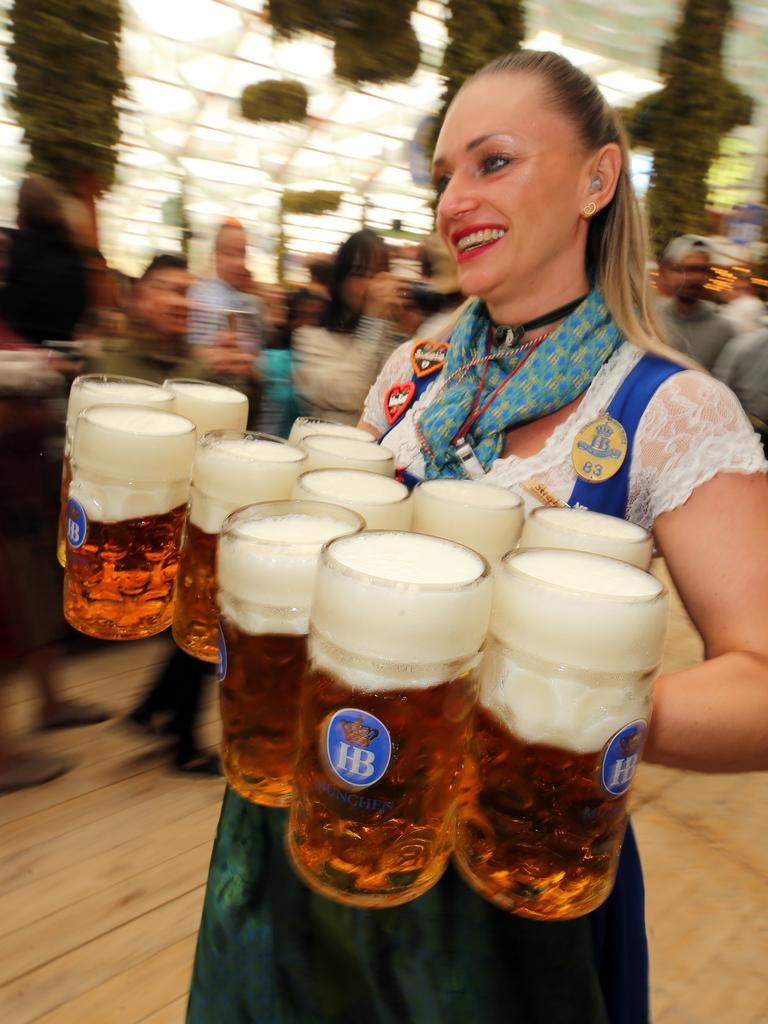
Since then, pandemic “conditions have changed”, Reiter said, noting that the healthcare system was no longer under significant stress from the coronavirus.
“I hope the situation does not get worse in the autumn and that the festival will not have to be called off at the last minute,” Reiter said.
Most Covid curbs have been lifted in Germany, including the requirement to wear masks in shops and schools, while plans to introduce a vaccine mandate were dropped.
Russia’s invasion of Ukraine has cast a shadow over similar springtime festivities in Bavaria, where the subject has been hotly debated.
Cancelling the Oktoberfest as a result of the war “could not be justified”, Reiter said, while sharing his sympathies with Ukraine and Munich’s twin city Kyiv.
“Nobody can tell what the situation will be in autumn” with the war, the mayor said.

CHINA GROUNDS FLIGHTS AS COVID SPREADS TO GUANGZHOU
The megacity of Guangzhou cancelled hundreds of flights and launched mass testing of 5.6 million people after one “suspected” Covid test result, as Chinese Communist Party battled to contain the spread of coronavirus across the country.
Rolling virus restrictions — including a weeks-long lockdown of virtually all of Shanghai’s 26 million residents — have damaged the economy, causing backlogs at the world’s busiest container port, a key node in the global supply chain.
Guangzhou, a major trade and manufacturing hub in southern China, announced mass testing for almost a third of its near 19 million residents on Thursday after an “abnormal” test result was detected at its airport, where most flights have been cancelled.
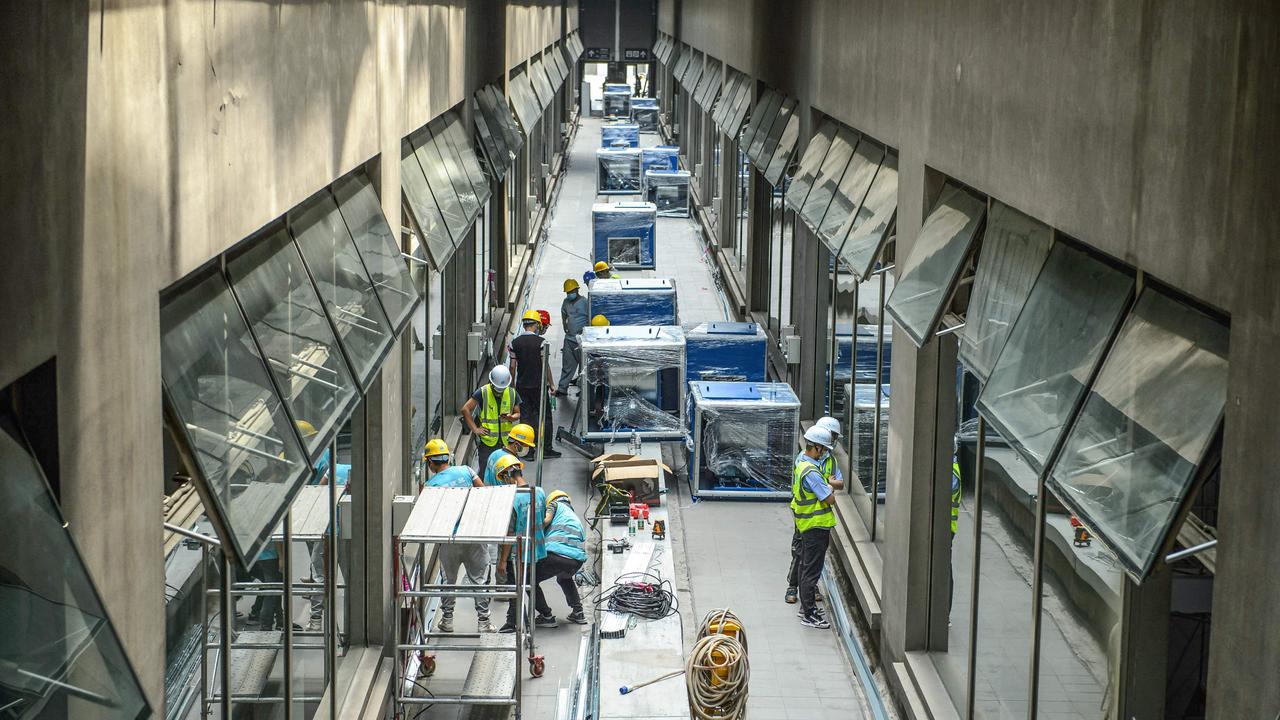
Meanwhile, the tech hub of Hangzhou near Shanghai late on Wednesday ordered 9.4 million downtown residents out of its 12.2 million population to get tested every 48 hours if they want to access public spaces and transportation.
China is facing its worst outbreak since the peak of the first wave in early 2020, with eastern Shanghai recording dozens of daily deaths and the capital Beijing sealing off whole neighbourhoods where handfuls of cases have been detected.
Under its zero-Covid policy, China has used lockdowns, mass testing and travel restrictions to stamp out infections.
The strategy is under strain, with the highly transmissible Omicron variant punching through health controls.
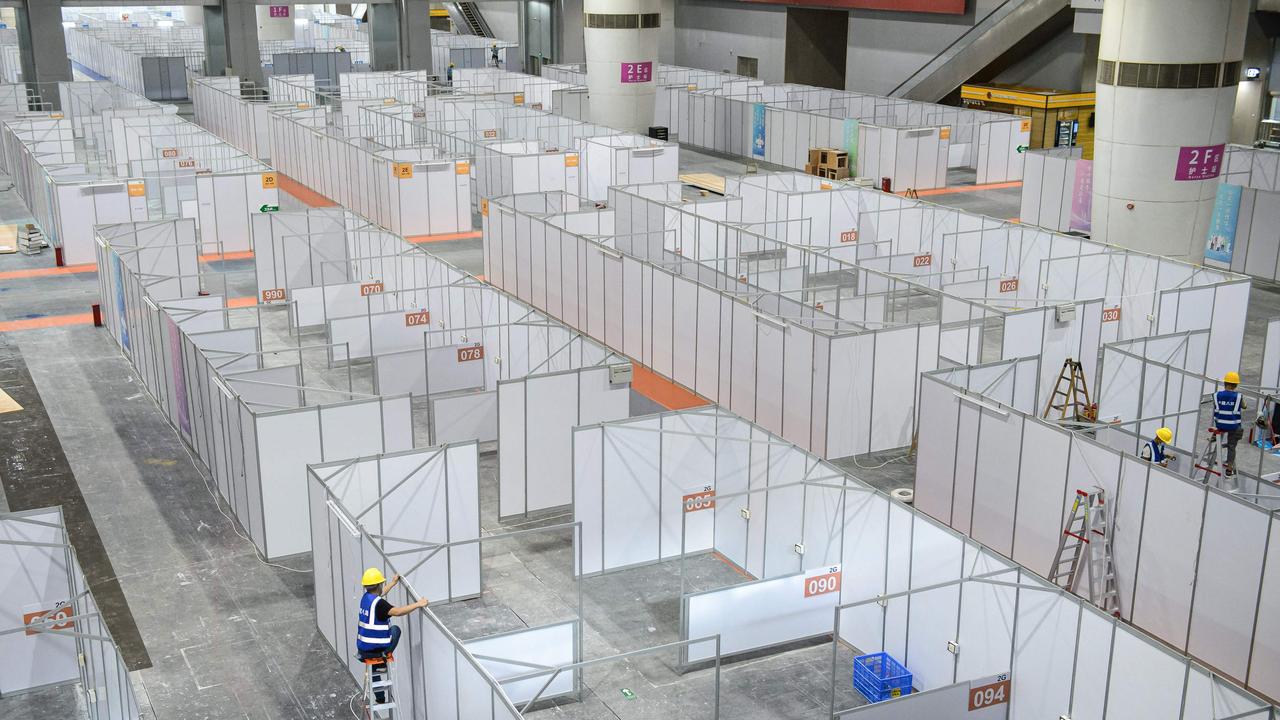
The aim of new testing orders and flight cancellations is so “that the virus has nowhere to hide or settle”, the government said in a statement, raising fears of further restrictions across a city home to some of China’s biggest companies.
China reported 11,367 new infections on Thursday, a small daily tally compared with most major global economies, but enough to rattle authorities in the country where the coronavirus was first detected in late 2019, but that had until recently emerged relatively unscathed by the pandemic.
Over 10,000 of those cases were detected in Shanghai, where cases are trending downwards after a weeks-long lockdown which has enraged residents and seen rare protests against a government accused of bungling the response and failing to feed people confined at home.
The city is waging a campaign to reach “zero-Covid at the community level” — meaning no transmissions outside locked-down areas.
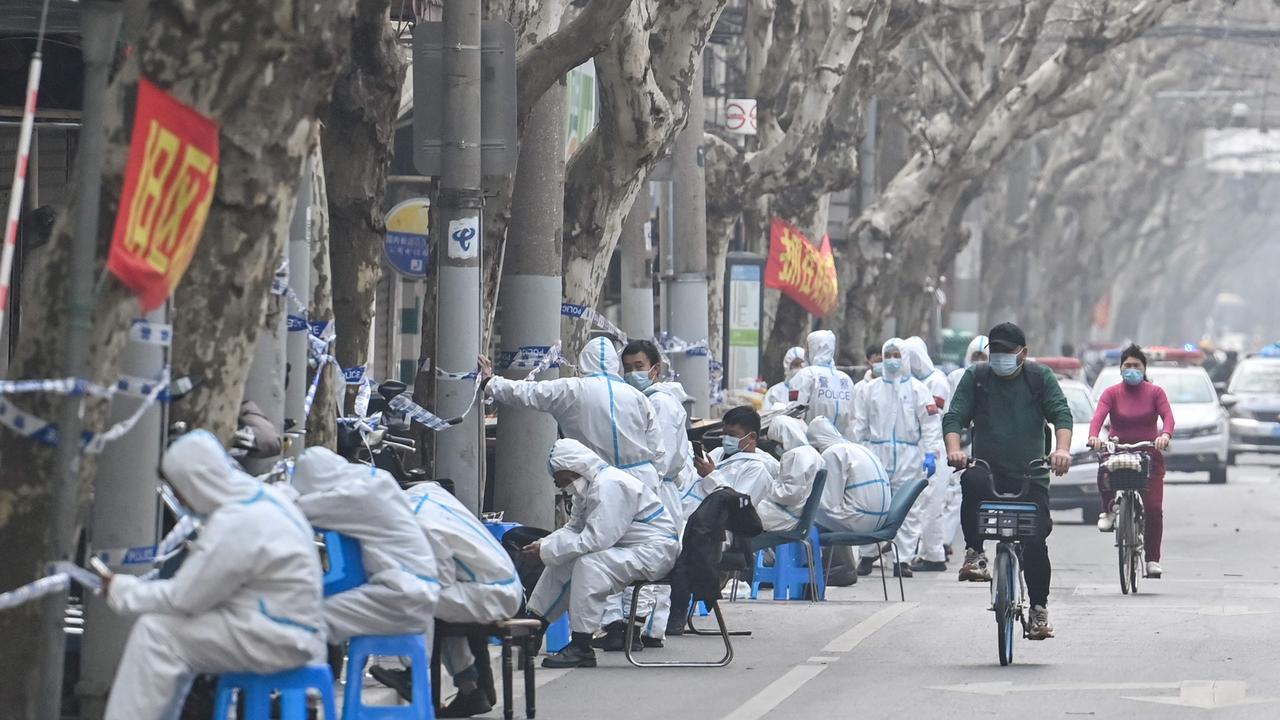
In recent days, more housing compounds have lifted movement restrictions and authorities on Thursday said 90 per cent of new infections were found in quarantined areas.
Around 50 new cases were found in Beijing, the seat of government for President Xi Jinping, who has until now hailed China’s virus response as an example of the superiority of the country’s Communist leadership.
The capital launched mass testing of nearly all its 21 million residents this week and locked down more housing compounds in its populous Chaoyang district Thursday.
Residents are on high alert of a potential wider lockdown, with large gatherings, group travel and weddings suspended and some schools moving online.
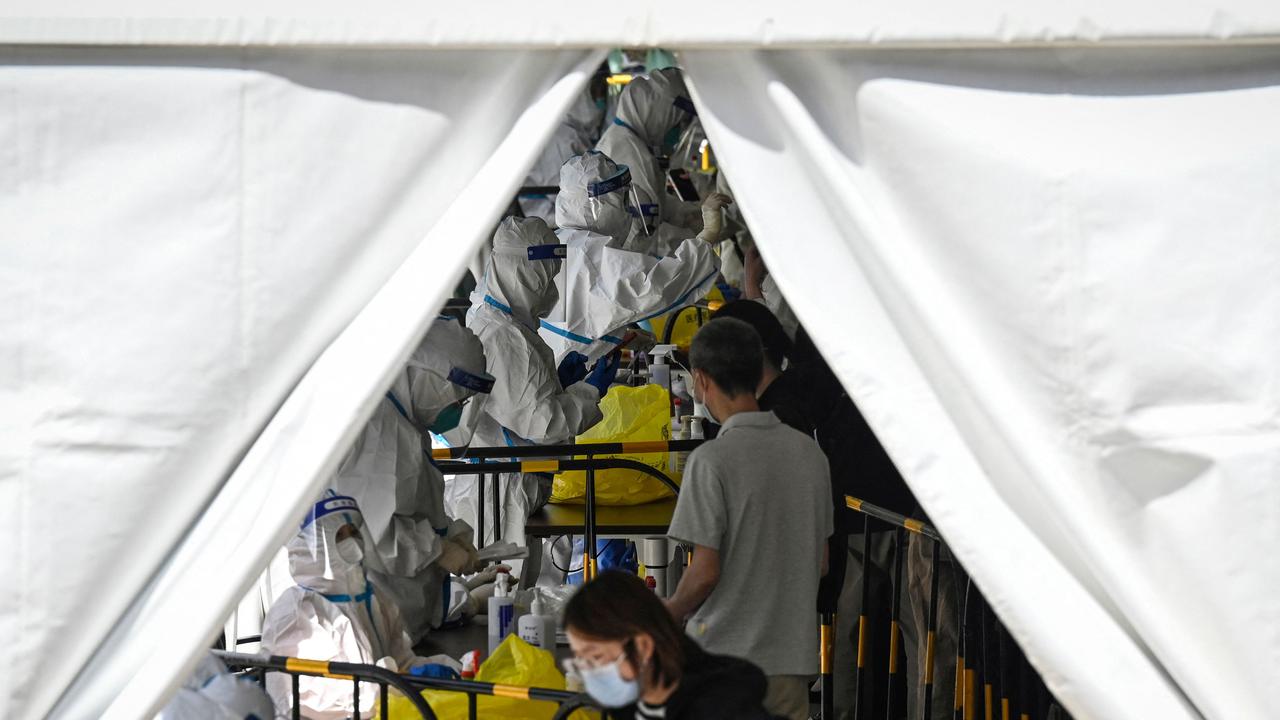
US OUT OF PANDEMIC PHASE
As Americans prepare for their second booster shot and mask requirements are lifted across the nation, White House chief medical adviser Dr Anthony Fauci said the US was no longer in the “pandemic phase” of Covid-19.
Dr Fauci’s comments come two years after the coronavirus first swept through the country.
“We don’t have 900,000 new infections a day and tens and tens and tens of thousands of hospitalisation and thousands of deaths,” Dr Fauci said.
“We are at a low level right now.”
But the virus would not be eradicated, he said.
Dr Fauci said there was still a global health crisis, therefore efforts, such as vaccinations, would need to continue to keep infection rates low.
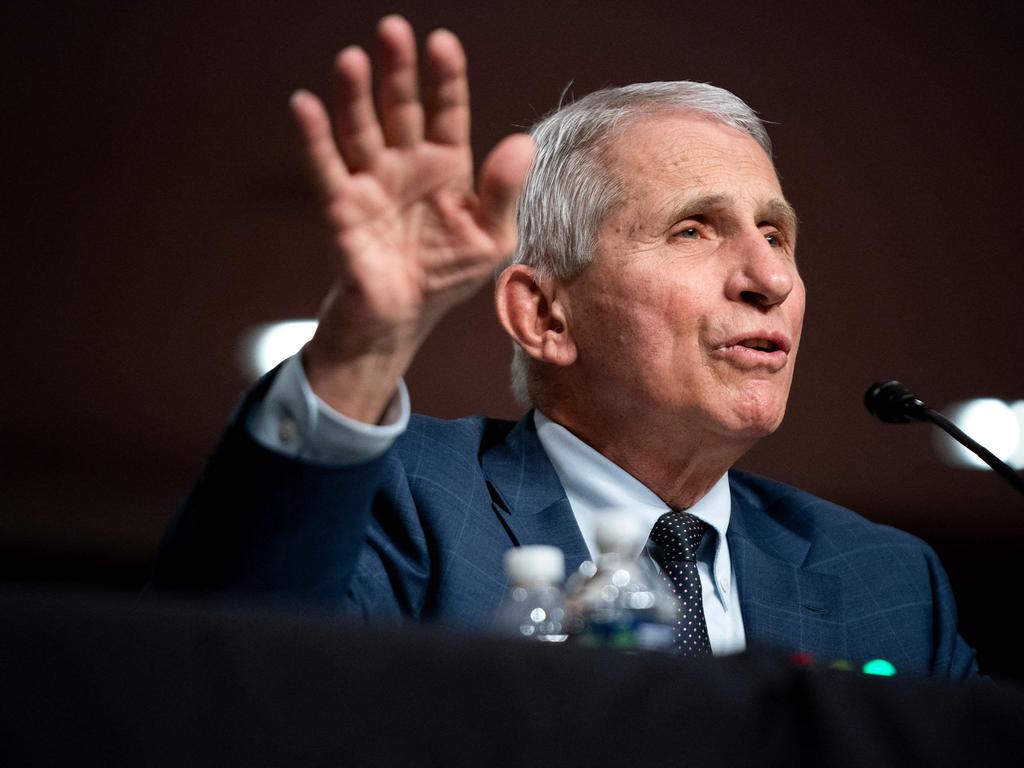
“Pandemic means a widespread, throughout the world, infection that spreads rapidly among people,” he said.
“So, if you look at the global situation, there’s no doubt this pandemic is still ongoing.”
The US has experienced a minor increase in Covid-19 infections, due in part to the BA. 2 subvariant of the virus, however earlier this month Dr Fauci said the variant did not “appear to be associated with an increase in hospitalisation and severe disease.”
But the World Health Organisation continues to express concern, with Dr Tedros Adhanom Ghebreyesus, director-general of the WHO warning complacency could lead to a resurgence of the virus.
Dr Ghebreyesus’ comments came as WHO reported 15,668 Covid-related deaths over a seven day period, one of the lowest figures since March 2020.
“[Rolling back of Covid surveillance] makes us increasingly blind to patterns of transmission and evolution. But this virus won’t go away just because countries stop looking for it. It’s still spreading, it’s still changing, and it’s still killing,” Dr Ghebreyesus said.
“The threat of a dangerous new variant remains very real – and although deaths are declining, we still don’t understand the long-term consequences of infection in those who survive,’ he said.
‘When it comes to a deadly virus, ignorance is not bliss. WHO continues to call on all countries to maintain surveillance.’
Covid restrictions have been lifted almost everywhere in America.
Covid testing and tracking has been scaled back in both America and some parts of Europe, with pandemic-related funding diverted elsewhere.
MEASLES CASES SURGE
Measles cases have surged by nearly 80 per cent world wide this year, the United Nations has announced, warning that the rise of the “canary in a coal mine” illness indicates that outbreaks of other diseases are likely on the way.
The coronavirus pandemic has interrupted vaccination campaigns for non-Covid diseases around the world, creating a “perfect storm” that could put millions of children’s lives at risk, the UN’s children’s agency UNICEF and the World Health Organisation said in a statement.
More than 17,300 measles cases were reported globally in January and February, compared to around 9,600 during those months last year, according to new data from the UN agencies.
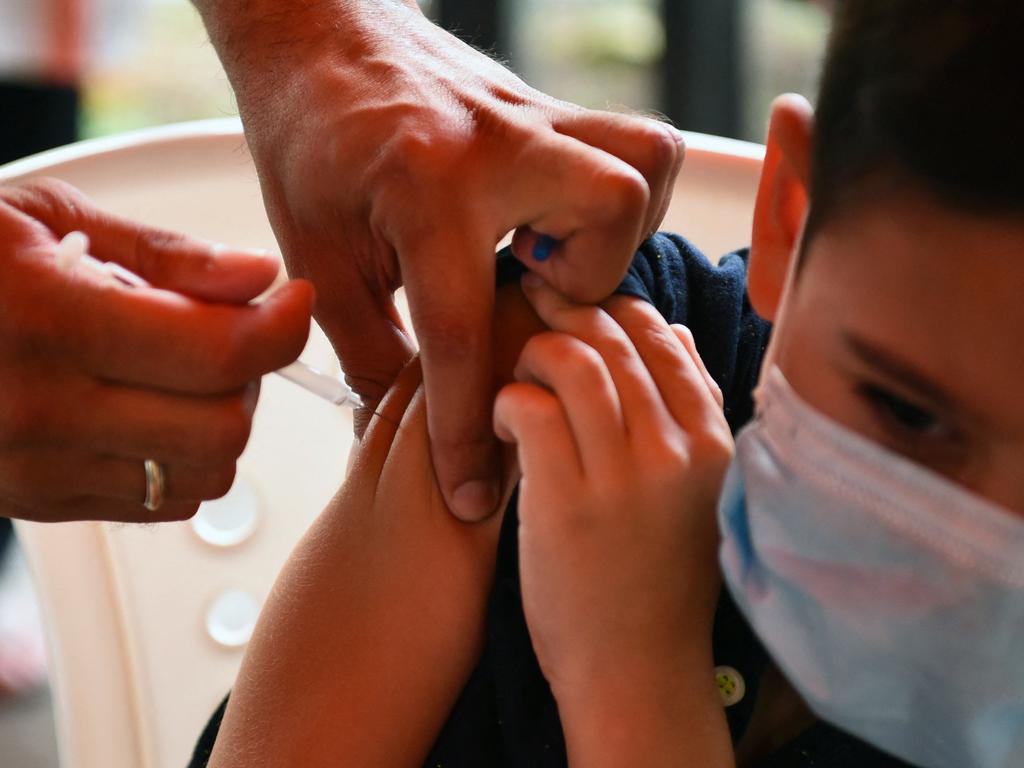
There have been 21 large and disruptive measles outbreaks in the last 12 months to April, most of them in Africa and the eastern Mediterranean, the data showed.
Christopher Gregory, senior health adviser in UNICEF’s immunisation section, told reporters that because measles is the “most contagious vaccine-preventable disease” it often serves as a warning sign.
“Measles is what we call the tracer, or the canary in the coal mine, that really shows us where those weaknesses in the immunisation system are,” he said.
He said yellow fever was among the diseases that could surge next, after rising cases were reported in West Africa.
“We’re particularly worried about those countries that are most fragile, where the healthcare systems are already really struggling, where they’re still trying to deal with the impacts of Covid on top of these outbreaks,” he said.

Somalia recorded by far the most measles cases in the last 12 months with more than 9,000, the UN data showed, followed by Yemen, Afghanistan, Nigeria and Ethiopia — all countries battling some form of conflict.
There are also fears that the war in Ukraine could spark a resurgence in the country after it recorded Europe’s highest rate of measles between 2017-2019.
Gregory said that it had been very difficult to keep track of any disease in Ukraine since the war began, adding that the biggest concern was “what we could be missing”.
IMPACT ‘FELT FOR DECADES’
More than 23 million children missed out on routine vaccinations in 2020 as the Covid pandemic descended, the largest number in more than a decade.
The UN agencies said that 57 vaccination campaigns in 43 countries postponed at the start of the pandemic had still not been completed, affecting 203 million people — most of them children.
Covid also continues to pile pressure on healthcare facilities and drag staffing and attention away from vaccination for longstanding deadly diseases.
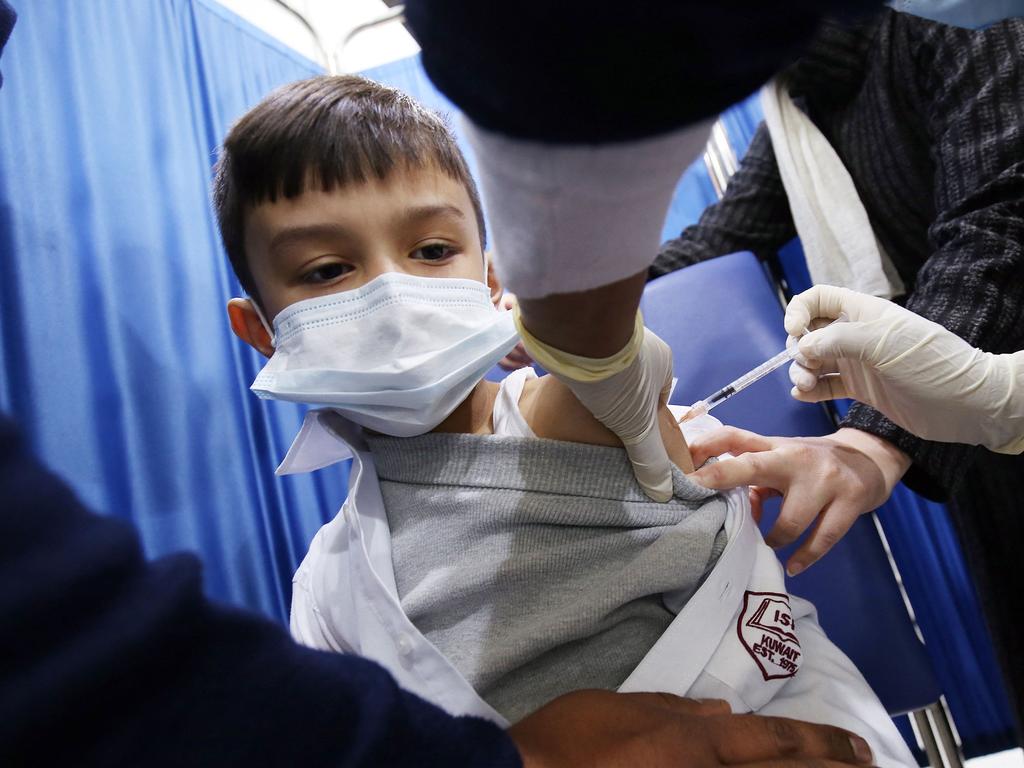
“The impact of these disruptions to immunisation services will be felt for decades to come,” WHO chief Tedros Adhanom Ghebreyesus said in the statement.
“Now is the moment to get essential immunisation back on track and launch catch-up campaigns so that everybody can have access to these lifesaving vaccines.”
Gregory said it was time to put childhood immunisation on “at least the same level of priority as finishing Covid vaccination”.
Measles is a disease caused by a virus that attacks mainly children. The most serious complications include blindness, brain swelling, diarrhoea, and severe respiratory infections.
Vaccination uptake of at least 95 per cent is the best way to avoid it spreading, though many countries fall far short of that goal — Somalia is at just 46 per cent, according to the UN data.
DENMARK SUSPENDS VAXX PROGRAM
Denmark, which in February lifted all curbs related to the coronavirus pandemic, has announced it will suspend its widespread Covid-19 vaccination campaign.
Noting that the epidemic was under control and that vaccination levels were high, the Danish Health Authority said the country was in a “good position.”
“Therefore we are winding down the mass vaccination program against Covid-19,” said Bolette Soborg, director of the authority’s department of infectious diseases.
Around 81 per cent of Denmark’s 5.8 million inhabitants have received two doses of the vaccine and 61.6 per cent have also received a booster.
Denmark was also one of the first European countries to open vaccination to all children born between 2010 and 2016.
The Scandinavian country of 5.8 million inhabitants led the charge when other countries European countries were just starting or considering doing so, such as France.
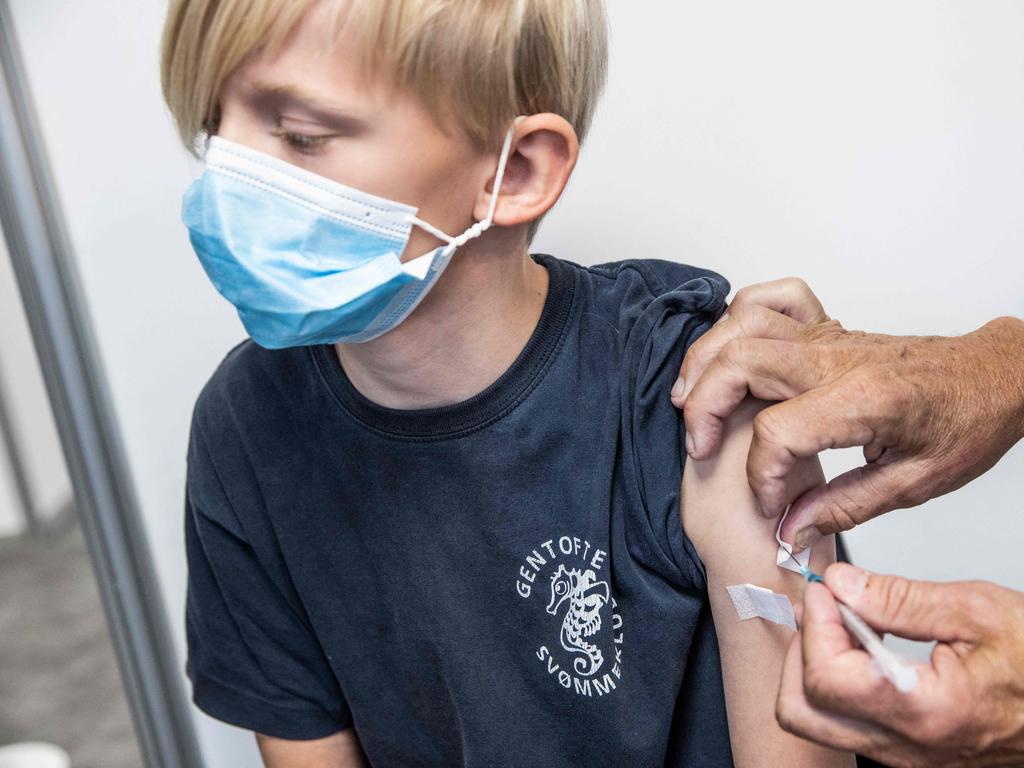
But after Denmark noted a drop in the number of new infections and stable hospitalisation rates it decided that invitations for vaccinations would no longer be issued after May 15. However, local health officials anticipate that vaccinations would resume after the summer.
“We plan to reopen the vaccination program in the autumn. This will be preceded by a thorough professional assessment of who and when to vaccinate and with which vaccines,” Soberg said.
As a wave of the Omicron variant hit the country last November, Denmark intensified its immunisation campaign, accelerating access to booster shots and offering a fourth dose from mid-January to the most vulnerable.
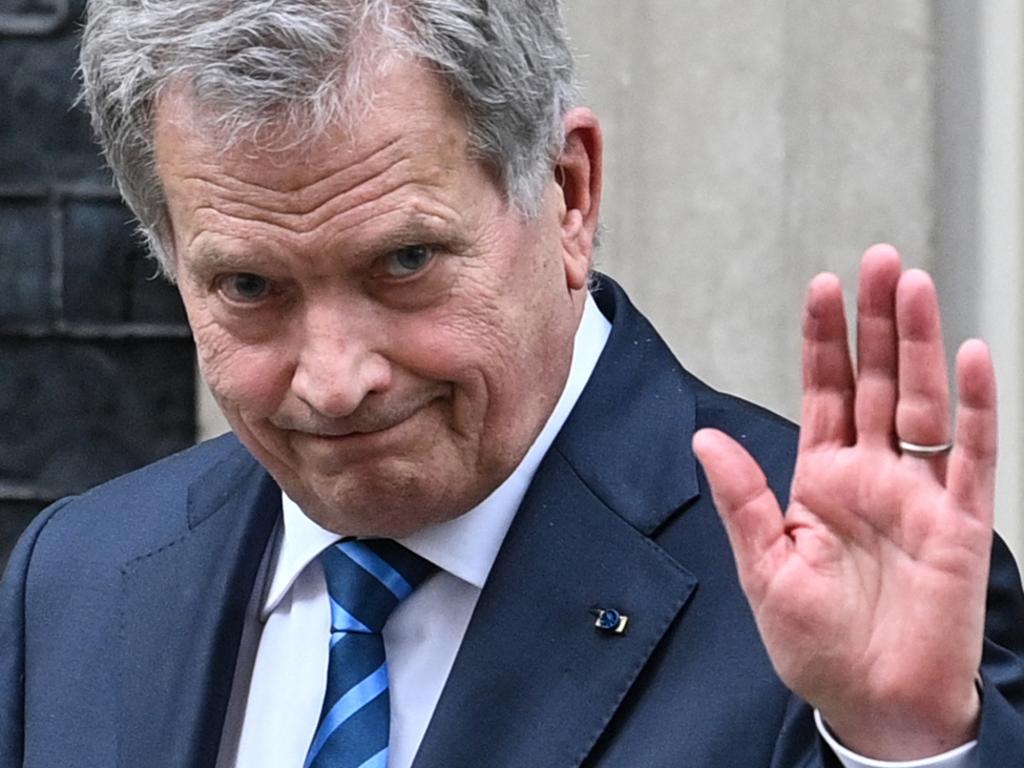
It comes as Finnish president Sauli Niinisto is in hospital for monitoring due to “prolonged Covid-19 symptoms,” his office said on Tuesday.
“President Niinisto is feeling reasonably well and is continuing to work remotely,” the office said.
The 73-year-old head of state was diagnosed with coronavirus on April 19, leading to the postponement of a visit to Nordic neighbour Norway.
The president’s illness comes as Finland’s politicians mull a potential application to join NATO, which would be a historic reversal in policy for the country.
Finns have traditionally been against joining the Western military alliance, but opinion polls have recorded soaring support and even majorities in favour following Russia’s invasion of Ukraine.

VP KAMALA HAS COVID, BUT NO FEARS FOR BIDEN
US Vice President Kamala Harris tested positive for Covid-19 on Tuesday but is asymptomatic and not considered a current close contact of US President Joe Biden, the White House said.
“Today, Vice President Harris tested positive for Covid-19 on rapid and PCR tests. She has exhibited no symptoms, will isolate and continue to work from the vice president’s residence,” said Harris’ press secretary, Kirsten Allen.
“She has not been a close contact to the president or first lady due to their respective recent travel schedules,” Allen said, adding that Harris would “return to the White House when she tests negative.”
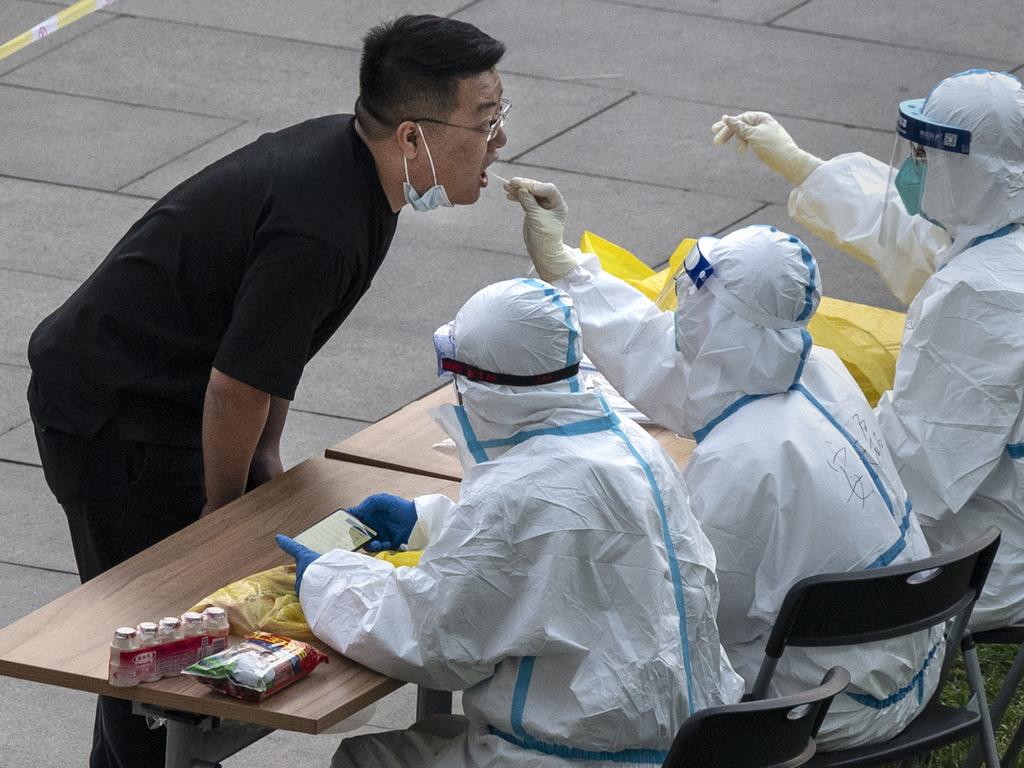
BEIJING EXPANDS MASS TESTING AS LOCKDOWN FEARS GROW
Beijing launched mass coronavirus testing on Tuesday, local time, for nearly all its 21 million residents, as fears grew that the Chinese capital may be placed under a strict lockdown like Shanghai.
Under its zero-Covid policy, China has used lockdowns, mass testing and travel restrictions to stamp out infections.
Its biggest city, Shanghai, has been almost entirely locked down for weeks, and the mass testing order in Beijing has sparked worries the capital will be placed under similar restrictions.
“Shanghai’s situation has gone beyond everyone’s imagination, and many people think it’s absurd that a modern metropolis … has handled the situation like that,” said Beijing resident Ms Zhao as she did her regular shopping at a supermarket.
“I believe our situation will not be as bad … but to be honest, we also bought some rice, noodles, grains and oil. We’ve made preparations for at least one to two weeks,” the 35-year-old human resources professional told AFP.
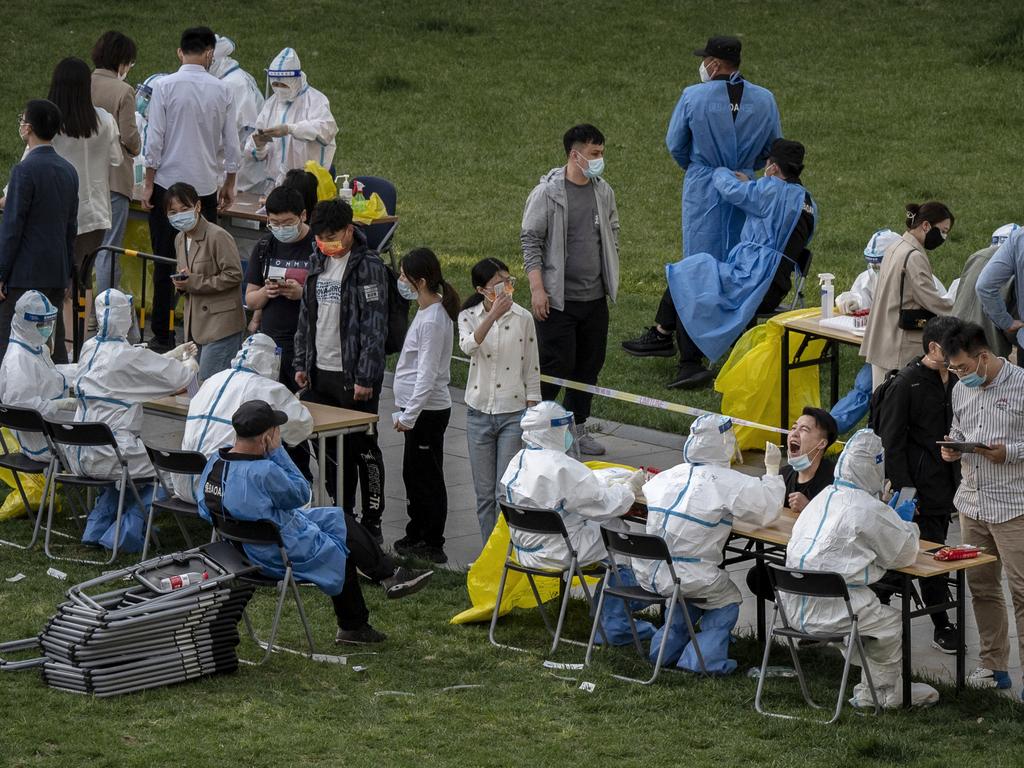
Beijing has ordered residents of the 12 central districts home to most of its population to undergo three rounds of testing after dozens of infections were found in recent days.
The capital’s most populous district, Chaoyang, was the first to order mass testing from Monday, with people waiting in long lines to be swabbed by health workers in protective gear.
Eleven more districts began testing on Tuesday.
The testing order for Chaoyang sparked panic buying on Sunday night, with residents lining up at supermarkets with full carts as state media tried to reassure the public there were plentiful supplies.
Several residential compounds have already been sealed off in Chaoyang. One resident, who declined to be identified for fear of reprisal, told AFP he felt “a little anxious” after fences were suddenly put up in his neighbourhood.
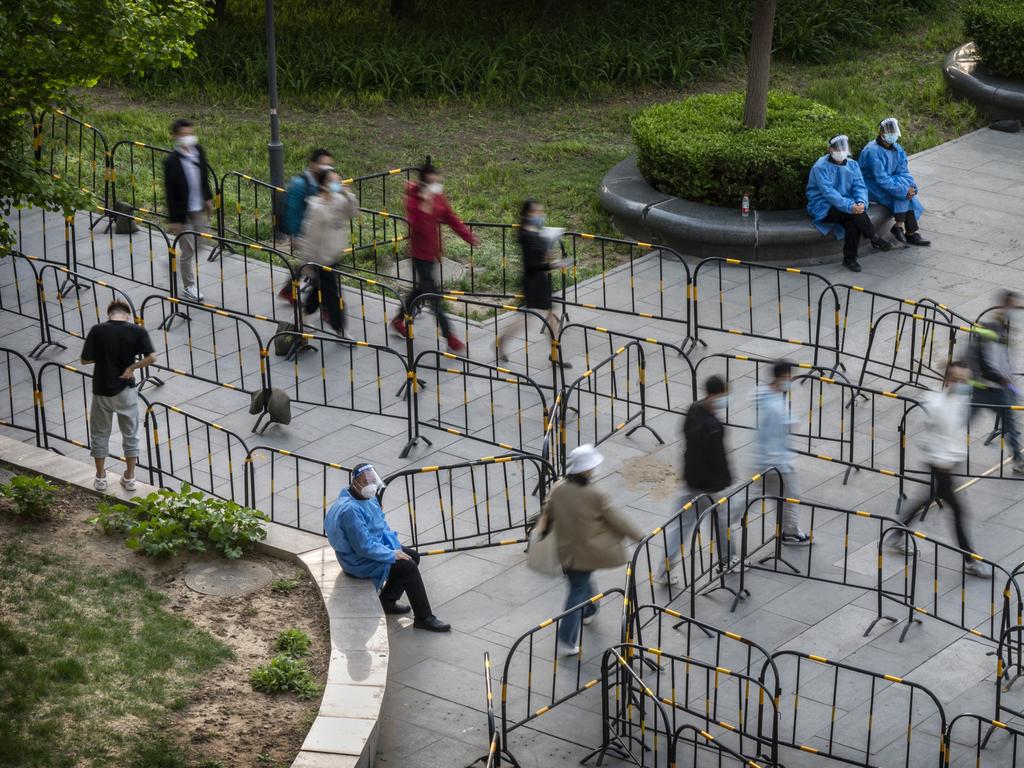
Residents in his building were ordered Monday night to stay home for at least 14 days after one neighbour tested positive.
“I’m worried that if we need medicine or other items in the future, we won’t be able to get them delivered,” he said.
Meanwhile, Beijing suspended large gatherings such as wedding banquets, closed theatres, and ordered a halt in some construction projects.
Many of the new infections were linked to one wedding party, officials told reporters, saying efforts to control the spread of the virus were at a “critical stage”.
They urged residents to wear stronger N95 masks.
The capital reported 33 new cases Tuesday, a fraction of Shanghai’s daily tally of 16,000 infections and 52 new deaths.
But Beijing officials are anxious to avoid a spiralling outbreak. They have urged companies to allow employees to work from home and suspended local group tourism ahead of the May national holiday.
Authorities have urged residents not to leave Beijing unless necessary.
MAJORITY OF BRITS HAVE COVID AS REPORT SLAMS VIRUS RESPONSE
Covid-19 infections have fallen in the UK for the first time since the middle of January, according to the Office for National Statistics (ONS).
In England, infections have fallen for the second consecutive week, with 3.2 million people likely to test positive for Covid-19, or one in 17 – down from 3.8 million, or one in 14.
However, new estimates reveal that more than 70 per cent of people in England have been infected with Covid-19 since the beginning of the pandemic.
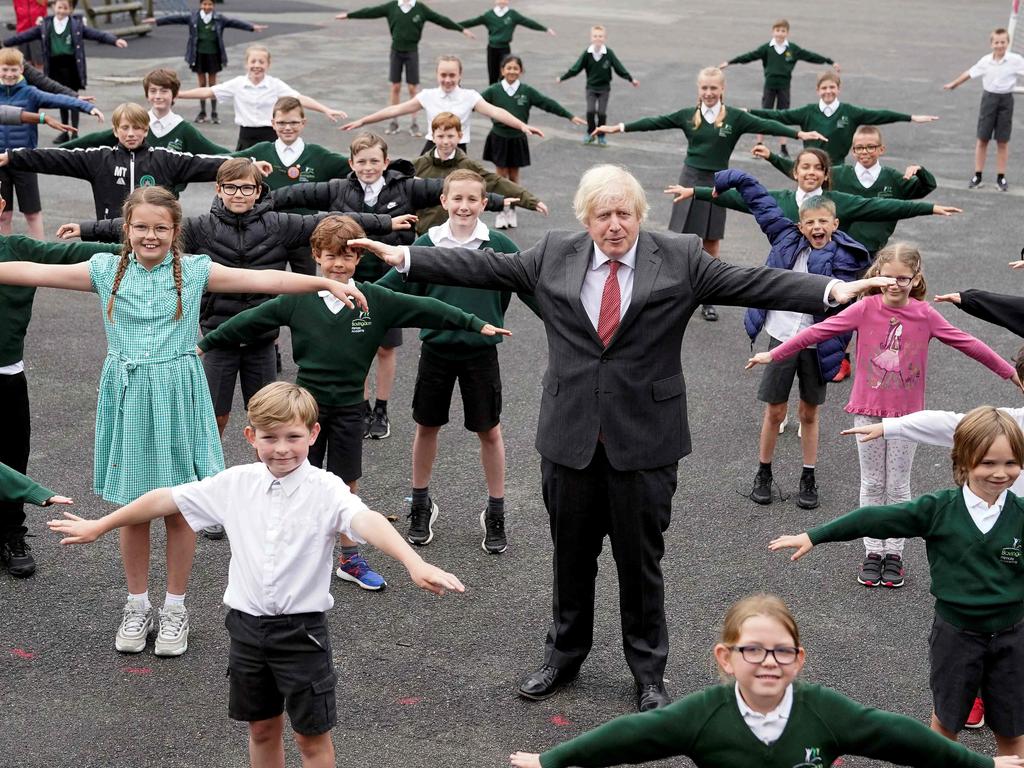
According to new figures from the ONS, approximately 38.5 million people have had at least one bout of the infection since the end of April 2020.
It comes as Britain’s travel curbs on airlines during the pandemic were disproportionate and confusing – and financially ravaged the travel sector, UK politicians concluded on Monday, local time.
Parliament’s cross-party transport committee delivered the verdict in a key report into aviation during the emergency health crisis.
“Government restrictions on international travel throughout the pandemic were disproportionate to the risks to public health,” the report said.
Global aviation was slammed by coronavirus in early 2020 as authorities rushed to contain the deadly outbreak.
Britain imposed passenger testing and quarantine rules, and a “traffic light” system ranking Covid risks from destination countries.
While demand for air travel is recovering after curbs were lifted, airlines still bear the scars of the crisis that crushed demand, sparking vast financial losses and thousands of job cuts worldwide.
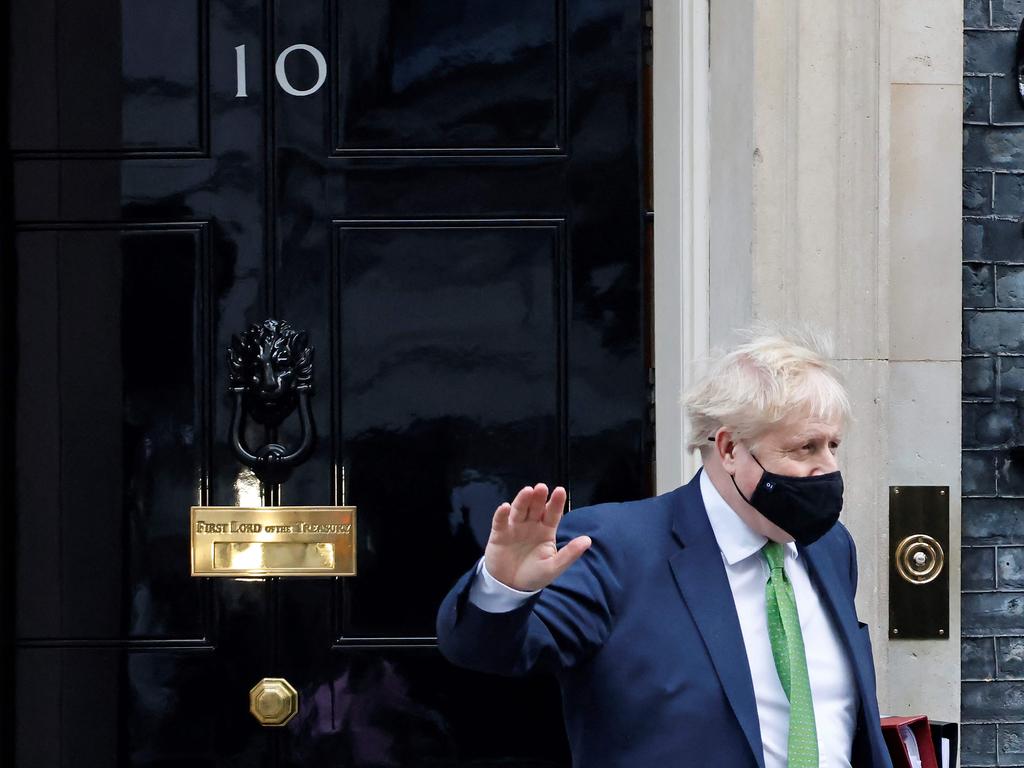
“The way in which the government introduced international travel restrictions during the pandemic was inconsistent, confusing industry and passengers,” the report added on Monday.
“The aviation industry … experienced severe economic difficulties due to government restrictions that were not based on scientific consensus.”
“As international travel restarted in the summer of 2021, the industry, its workforce and passengers were subjected to a traffic light system that was opaque, ambiguous and inconsistent,” added the report.
The government “struggled” to balance the “competing priorities” of the protection of public health and the facilitation of air travel.
Conservative MP Huw Merriman, who chairs the committee, stated: “In future, the government’s default approach will be to use the least stringent measures, to minimise the impact on travel as far as possible and these will only be implemented in extreme circumstances.”
QUEST FOR UNIVERSAL CORONAVIRUS JAB ACCELERATES
As vaccine makers rush to stamp out new Covid-19 variants, some scientists have set their sights higher, aiming for a universal coronavirus vaccine that could tackle any future strains and possibly even stave off another pandemic.
Since the race for a first Covid jab supercharged a new generation of vaccine technology, there have been numerous efforts to develop pan-coronavirus immunisation.
Drew Weissman of the University of Pennsylvania, who was a pioneer of the mRNA technology used in Pfizer’s Covid vaccine, said the problem with updating current vaccines to target all existing strains is that “new variants are going to appear every three or six months”.
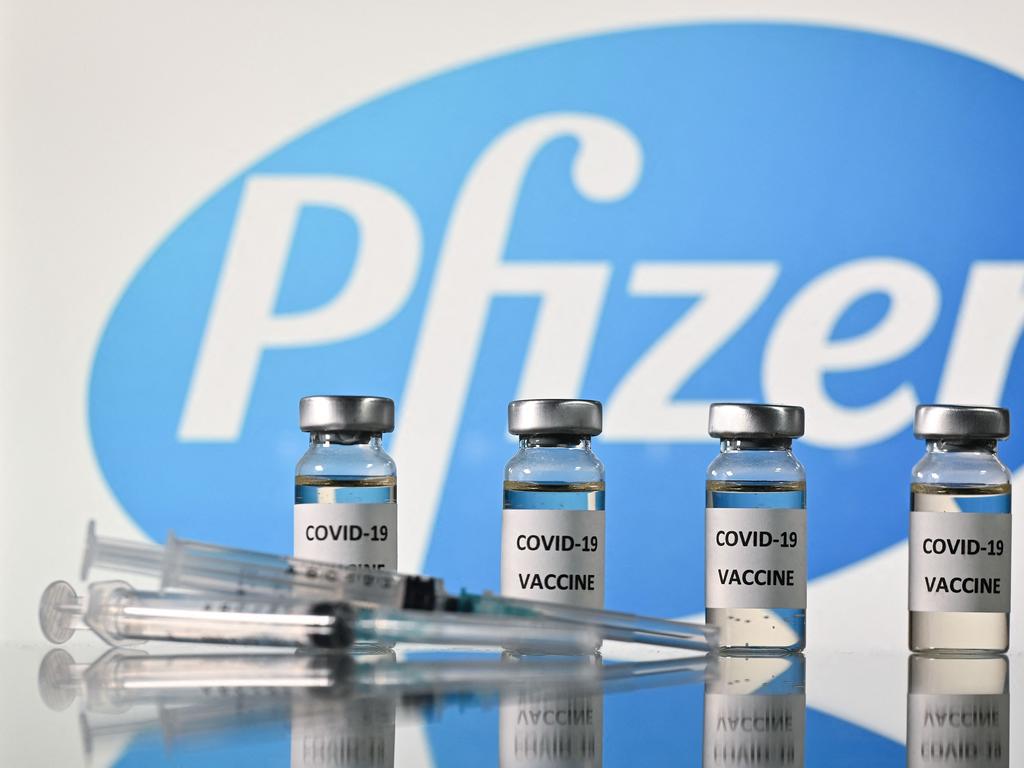
After more than two years simply trying to infect more people, he said, the virus is now starting to mutate specifically to get around the immunity gained from vaccines – much as influenza’s constant changing requires an updated shot every year.
“That makes it a little bit trickier, because now you’re fighting head-to-head with the virus,” Weissman told AFP.
“We may have a universal vaccine in two or three years, but we’re going to have to keep working on it and changing it over time to keep ahead of the virus,” Dr Weissman said.
Covid was not the first coronavirus to jump from animals to humans this century: its older relative SARS killed nearly 800 people from 2002-2004, and the Middle East Respiratory Syndrome (MERS) followed in 2012.
When US-based biotech firm VBI Vaccines announced its pan-coronavirus project in the early days of the pandemic in March 2020, it targeted all three.
Francisco Diaz-Mitoma, VBI’s chief medical officer, said: “We are trying to teach the immune system to expand upon the variations of virus it is capable of ‘seeing’ from the start,” he told AFP.
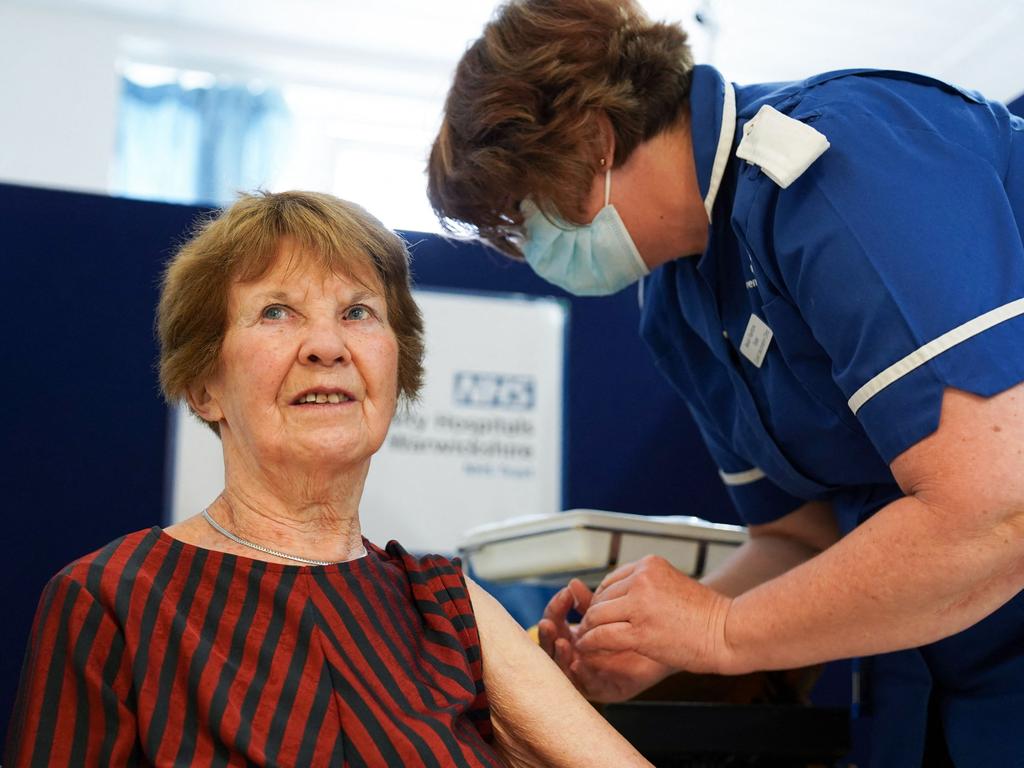
He said VBI’s vaccine had shown promising results so far – including in bats and pangolins – with clinical studies hoped to start in the coming months ahead of results in early 2023.
But Pamela Bjorkman of the California Institute of Technology said a true pan-coronavirus vaccine was probably not realistic because there are so many lineages – some which include common colds.
Her project uses a mosaic nanoparticle approach to target the B lineage of betacoronaviruses, which includes the original SARS-CoV and SARS-CoV-2, the virus that causes the disease Covid.
Bjorkman told AFP that even the “quest” for this specific lineage was comparable to the “many years of effort to make a universal influenza vaccine.”
But even if none of the current pan-coronavirus vaccine projects are likely to be rolled out in the next year, their eventual arrival could change the world’s relationship with Covid.
“If a pan-coronavirus vaccine is successfully able to establish a broader foundational immunity against coronaviruses, it would allow us, as a global society, to go from being one step behind, to leaping one step ahead of the pandemic,” Diaz-Mitoma said.
RECORD SHANGHAI DEATHS AS BEIJING CRACKS DOWN
Despite weeks of strict lockdown and mass testing on its 25 million residents, Shanghai logged a record 39 fatalities from Covid-19 on Sunday, according to the South China Post.
Vice-Premier Sun Chunlan called for the prompt treatment of patients.
“Daily new cases must be handled on the same day and every patient should be given a timely treatment,” said Sun Chunlan.
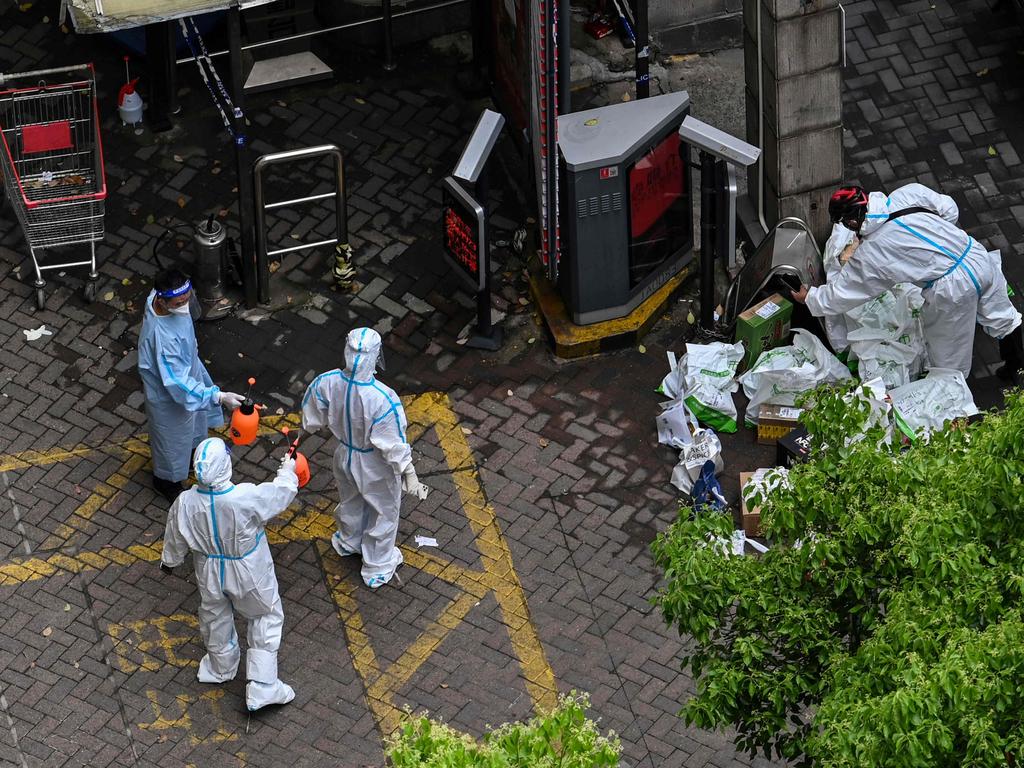
A total of 21,058 new cases in Shanghai were recorded in the last 24 hours, 10 per cent less than a day earlier, according to data released on Sunday. Symptomatic cases plunged by 49 per cent to 1,401. Cumulative infections since the outbreak began on March 1 topped 487,000.
Meanwhile, a wave of new cases in Beijing prompted local authorities to step up measures to cut chains of transmission and community spread.
Beijing added 13 new cases as of 4pm on Sunday, local time, raising the total number of infections in the nation’s capital to 41 in the latest outbreak.
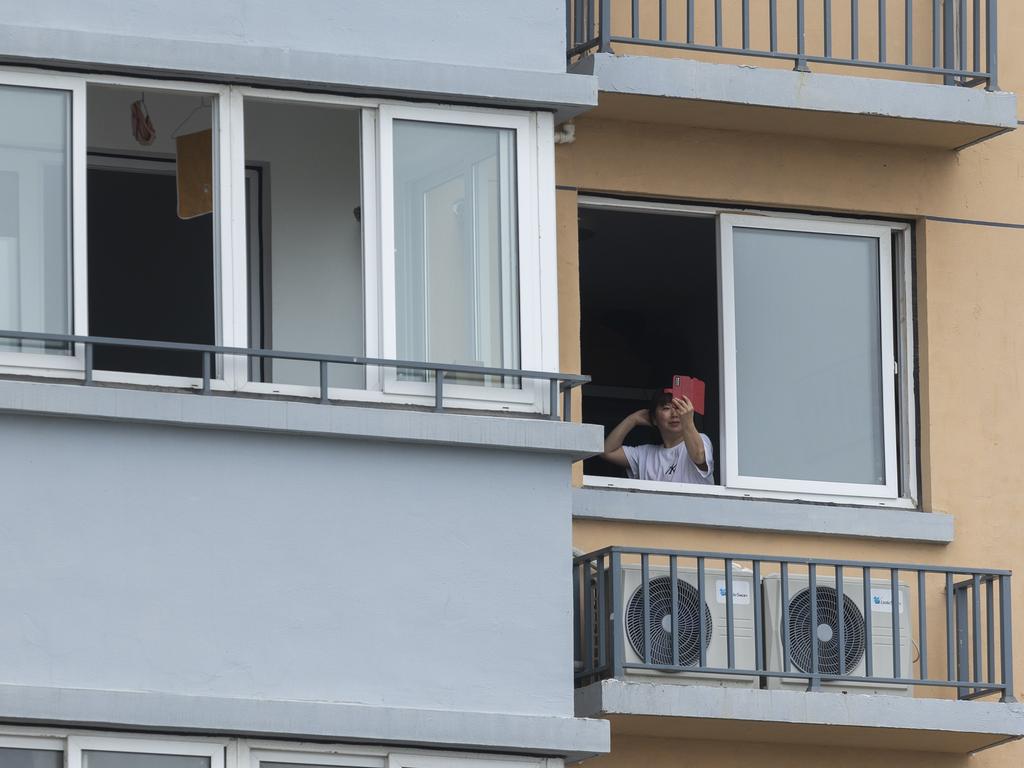
Local health officials said the virus had spread undetected in the city for about a week.
A total of 21,058 new cases were recorded in the last 24 hours, according to data released on Sunday
It comes as a viral video showing the impact of the prolonged coronavirus lockdown on Shanghai’s residents has been taken down by China’s internet censors Saturday, triggering an online backlash.
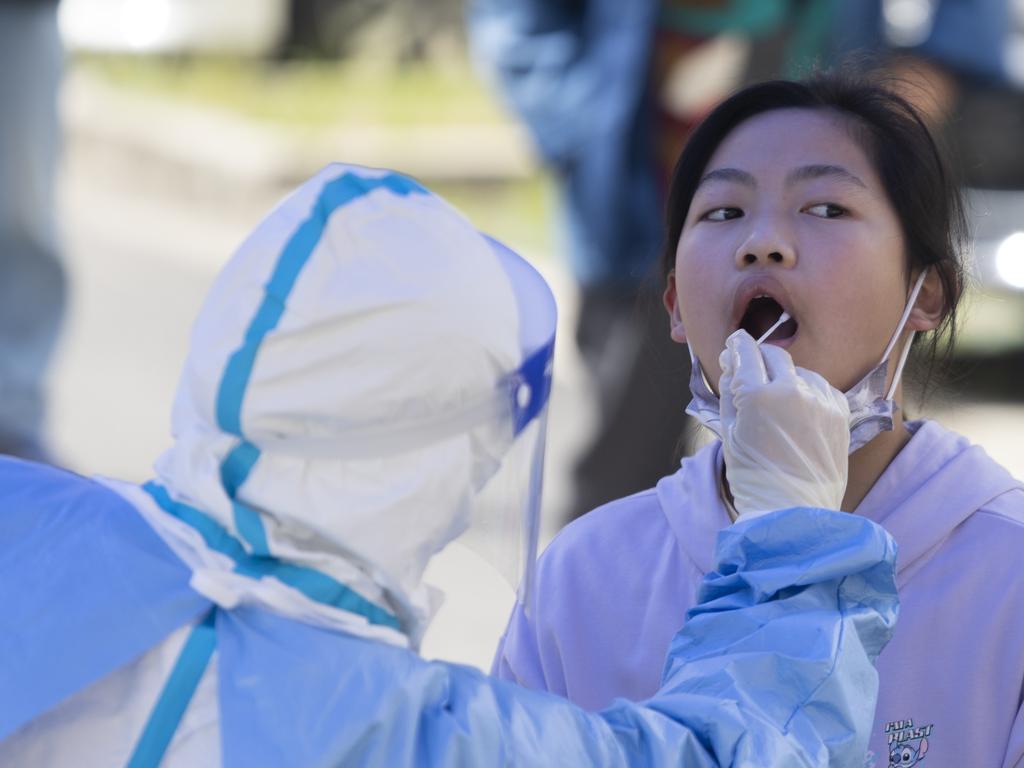
About 25 million residents in Shanghai have been shut in their homes since early April, as officials rush to kerb its worst ever outbreak since the beginning of the pandemic.
The city has struggled to provide fresh vegetables and other essentials to those in lockdown, while patients have reported trouble accessing regular medical care as thousands of health staff were deployed to Covid testing and treatment.
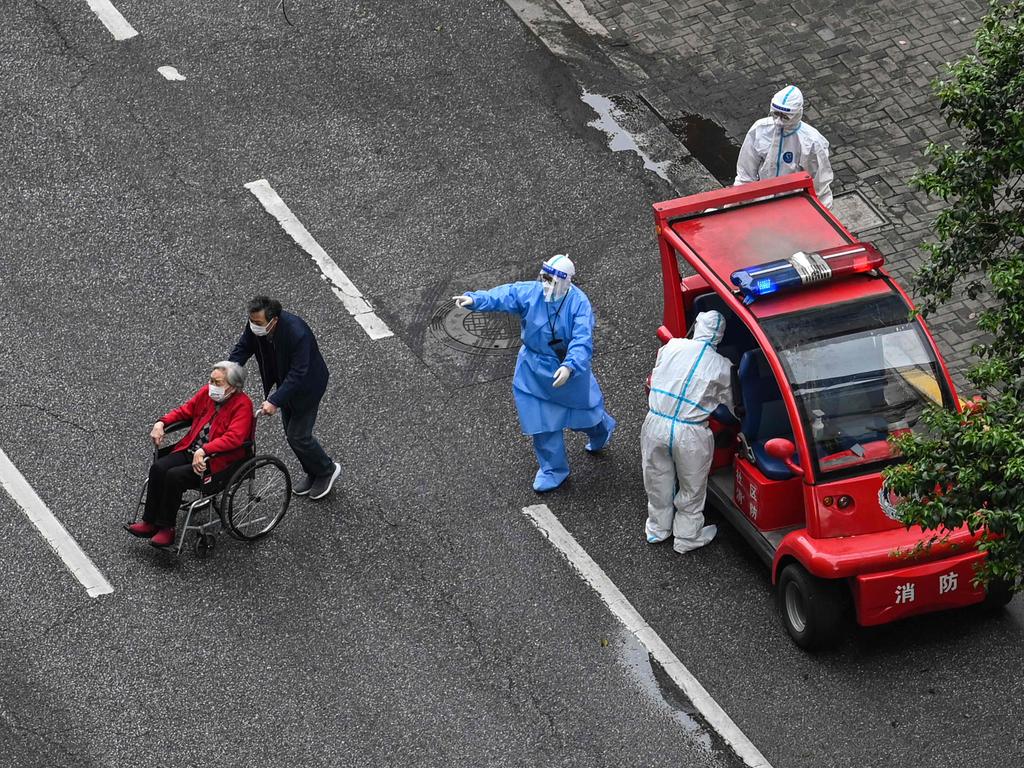
The issues were chronicled in a six-minute video titled “Voice of April”, which was widely shared on Weibo and WeChat social media platforms in China.
Shot against a simple aerial black-and-white view of the city, the video opens with audio clips from media briefings in March where officials say Shanghai will not have a citywide lockdown.
The decision was quickly reversed by April as the highly transmissible Omicron variant led to a spike in infections.
As the camera pans across the empty streets of Shanghai, audio clips are played in chronological order showing the dire situation of residents shunted into their homes without preparation.
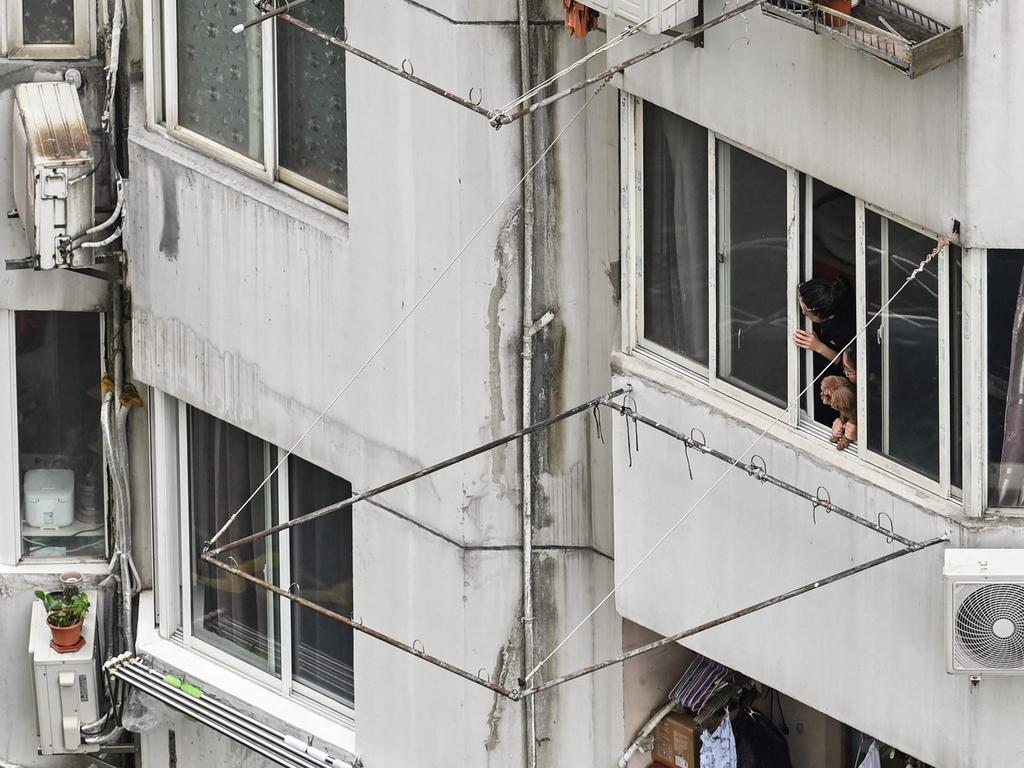
“We have gone to the hospital twice, but no one is there to treat us,” a man whose father is ill is heard saying.
In another, a woman complains about not being allowed back home when she returned from hospital after chemotherapy.
Internet censors scrubbed the video from Weibo and Wechat, but netizens kept uploading it into different cloud services.
The swift censorship of the video – which was posted by an anonymous account – led to an online backlash.
“The video was just presenting raw facts. There is nothing provocative!” said one commentator on Weibo.
“Its content is nothing new … But the fact of seeing that even that is censored, it bothers me,” wrote another.
Public criticism against the government is extremely rare, but the prolonged restrictions are testing the patience of the Chinese – with protest footage circulating on social media faster than censors can delete it.
Originally published as Coronavirus world: Oktoberfest returns to Germany ‘without conditions or restrictions’





